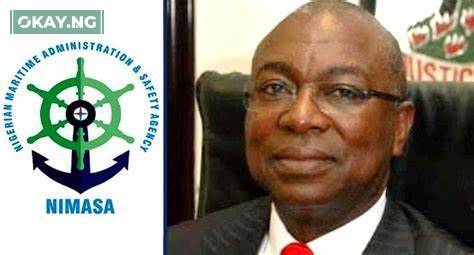After two decades of anticipation, Nigerian indigenous shipowners are on the cusp of accessing crucial financial support as the Nigerian Maritime Administration and Safety Agency (NIMASA) announced plans to commence the disbursement of the $700 million Cabotage Vessel Financing Fund (CVFF) by August 2025. The landmark announcement, made by NIMASA Director General Dr. Dayo Mobereola during an oversight visit by the House of Representatives Committee on Maritime Safety, Education, and Administration in Abuja, signals a significant step towards empowering local participation in the nation’s maritime sector.
“We are acting in accordance with the directive of the Minister to ensure indigenous shipowners finally have access to this critical funding,” Dr. Mobereola stated, as reported by the News Agency of Nigeria (NAN). “The guidelines have been streamlined based on the Minister’s approval, so beneficiaries can access the funds within three to four months.” This decisive move offers a beacon of hope to Nigerian maritime operators who have long advocated for access to this fund, established to bolster their capacity and competitiveness.
To ensure the effective management and wider reach of the substantial $700 million intervention, NIMASA has strategically expanded the number of participating Primary Lending Institutions (PLIs) from five to twelve. These financial institutions will play a pivotal role in conducting rigorous risk assessments, guaranteeing that the fund benefits credible and financially sound shipping firms.
The funding structure outlines a collaborative approach, with NIMASA contributing 50% of the capital, while the participating banks will provide 35%. The remaining 15% will be the equity stake from the shipowners themselves. This shared responsibility is designed to instill financial discipline and promote the long-term viability of the fund, ensuring that investments are made judiciously and sustainably.
Further bolstering the prospects for indigenous operators, NIMASA has mandated single-digit interest rates and extended loan tenures ranging from 15 to 20 years. This strategic decision aims to alleviate financial strain on beneficiaries, enabling them to compete more effectively with international counterparts in the dynamic global maritime landscape.
Read Also: House Committee Pledges Support for Maritime Law Modernization and Indigenous Ownership
Beyond the financing mechanism, NIMASA is actively forging partnerships with key cargo-generating entities, including the Nigerian National Petroleum Corporation (NNPC), Nigeria LNG Limited (NLNG), and various exporters. This proactive collaboration seeks to guarantee cargo availability for Nigerian-owned vessels, effectively coupling access to capital with tangible business opportunities for local operators.
The Acting Chairman of the House Committee, Uduak Odudoh, lauded NIMASA’s progress and acknowledged the broader efforts of the Ministry to enhance maritime safety and foster the sector’s overall development. He emphasized the protracted delays that had plagued the CVFF since its inception over two decades ago. “With renewed momentum and clearer direction from the Ministry, indigenous shipowners now have realistic prospects of accessing meaningful financial support by the third quarter of 2025,” Odudoh affirmed.
The CVFF represents a cornerstone of Nigeria’s ambitious blue economy strategy, which aims to empower local shipping businesses, reduce reliance on foreign-owned vessels, and generate employment opportunities across the maritime industry. The imminent disbursement of this fund holds the potential to unlock significant growth and foster a more robust and self-sufficient Nigerian maritime sector. For indigenous shipowners who have persevered through years of waiting, this development signifies not just financial support, but a tangible investment in their future and the nation’s maritime capabilities.













